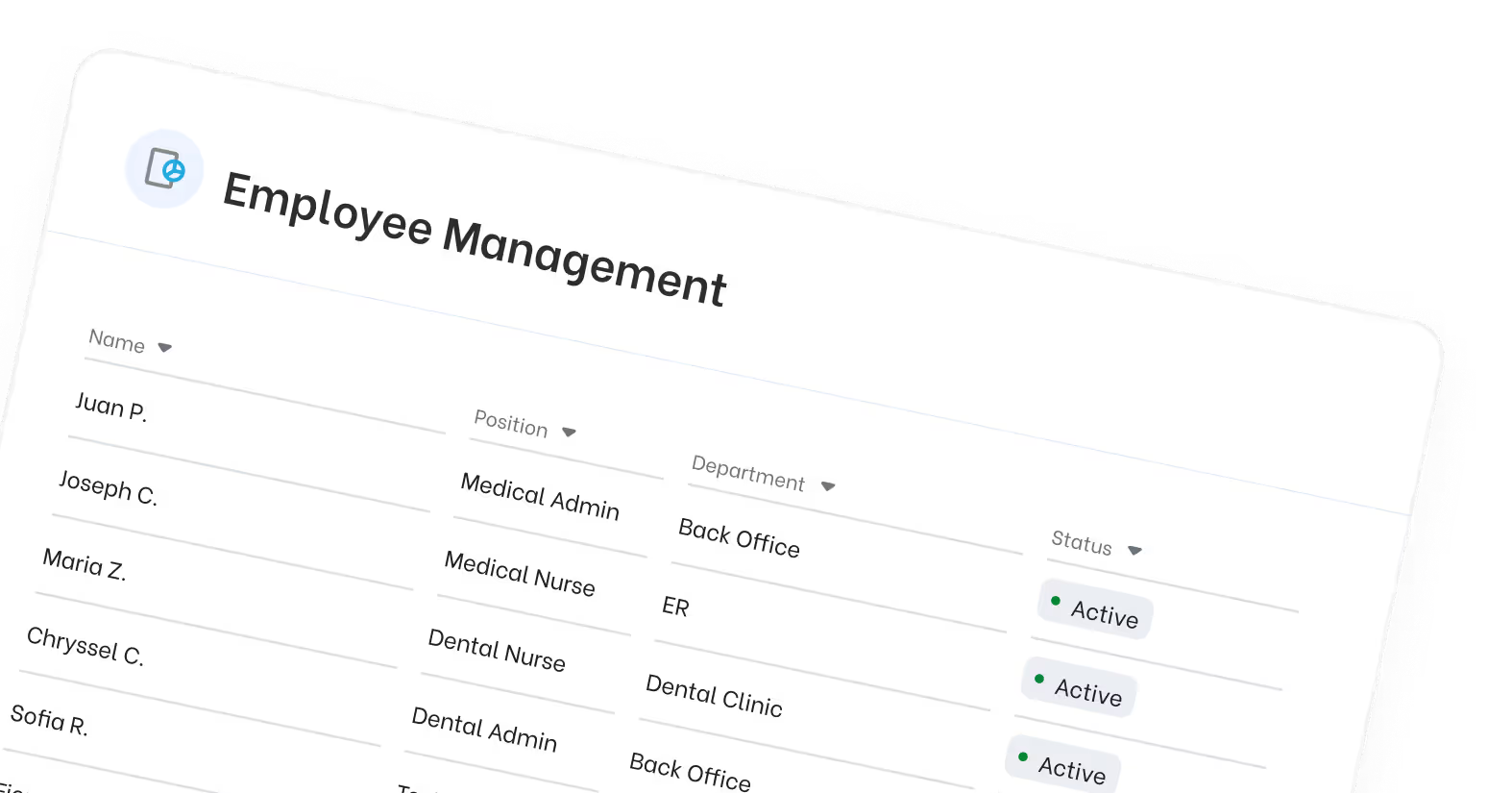7 Key Benefits of Outsourcing in Healthcare for Improved Efficiency

Outsourcing in healthcare offers several advantages, from enhanced patient care to cost savings. This article explores the 7 key benefits of outsourcing in healthcare, shedding light on how this strategy can help your organization improve efficiency and patient outcomes.
Key Takeaways
- Outsourcing enhances patient care and satisfaction by allowing healthcare providers to focus on core patient services.
- Access to specialized expertise through outsourcing improves operational efficiency and financial stability for healthcare organizations.
- Outsourcing provides scalability and flexibility, enabling healthcare practices to adapt to changing demands while maintaining high standards of care.

1. Enhanced Patient Care and Satisfaction
Outsourcing in healthcare significantly enhances patient care and satisfaction, ultimately improving the patient experience for patients. A study showed that two-thirds of participants believed outsourcing improved hospital service quality, which can help improve patient care and improve patient satisfaction. This assurance allows healthcare organizations to focus on delivering the best care possible.
Outsourcing non-core activities enables healthcare providers to allocate more time and resources to patient-focused services. This shift ensures healthcare professionals can prioritize patient care, resulting in higher patient satisfaction and a better overall experience.
Outsourcing critical tasks allows healthcare organizations to deliver higher-quality services. By freeing up internal resources, providers can focus on patient well-being and safety, enhancing outcomes and fostering a culture of excellence.
2. Access to Specialized Expertise
Outsourcing in healthcare offers access to specialized expertise that may not be available in-house. For example, outsourcing revenue cycle management provides professionals skilled in insurance policies and billing codes, ensuring accuracy and compliance.
Outsourced pharmacy services bring expertise in pharmaceutical procurement and inventory management, enhancing medication distribution capabilities. Similarly, outsourcing healthcare call center services ensures sensitive patient information is handled with care, improving overall service quality.
An outsourced healthcare contact center can provide multilingual support, appointment reminders, and efficient inquiry routing. These third-party vendors use advanced technologies and experienced teams to deliver high-quality customer support, enhancing patient satisfaction and operational efficiency.
3. Cost Savings and Financial Stability
Cost savings are a significant reason for healthcare organizations to consider outsourcing. By outsourcing, organizations can significantly reduce the costs of in-house recruitment and staffing. This improves financial efficiency and allows for smarter resource management by cutting expenses and using resources more effectively.
Outsourcing minimizes training costs by giving you access to skilled professionals who are ready to work full time. It also shortens the time needed to fill roles, making the recruitment process faster and more cost-effective.
For non-clinical roles like call center operations, outsourcing cuts costs by removing the need for heavy infrastructure. In areas like coding services, it speeds up claim submissions and reimbursements, which improves cash flow and boosts profitability. These benefits help streamline billing and drive stronger operational performance.
The cost savings from outsourcing in staffing, training, and operations contribute significantly to the financial stability of healthcare practices. The benefits of outsourcing help organizations achieve budget optimization and maintain financial stability.
4. Improved Operational Efficiency
Outsourcing is crucial for improving operational efficiency in healthcare organizations. Subcontracting coding tasks allows healthcare practices to focus more on patient care, ensuring resources are allocated effectively.
Outsourcing strategies can enhance workflow management and resource allocation. Effective outsourcing streamlines compliance processes, reducing the administrative burden on staff and allowing them to focus on quality patient care.
Experienced outsourcing firms help healthcare organizations navigate regulatory and operational challenges more effectively. These firms bring an experienced team with industry expertise and advanced technology, reducing operational expenses and improving efficiency.
5. Scalability and Flexibility
Outsourcing offers many healthcare organizations the scalability and flexibility to adapt to changing demands within the outsource organization. This allows practices to rapidly adjust operations in response to demand fluctuations, avoiding heavy financial investments in expanding or reducing capacity.
The flexibility from outsourcing is invaluable during periods of uncertainty or rapid growth. Whether managing seasonal spikes in patient volume or unexpected surges, outsourcing helps healthcare entities handle these changes effectively.
Outsourcing enables healthcare providers to focus on enhancing patient care while efficiently scaling support services. This adaptability ensures high standards of care are maintained regardless of external pressures.
6. Reduced Risk and Compliance Management
Outsourcing helps healthcare organizations reduce risk and manage compliance more effectively. Outsourcing medical billing to external medical coding experts minimizes the risk of claim denials and compliance issues by staying updated on coding standards, ensuring accuracy and adherence to regulations in their practice.
Outsourcing providers have specialized knowledge to navigate complex healthcare regulations and regulatory changes, significantly lowering non-compliance risks. This expertise is crucial for maintaining patient safety and avoiding costly penalties as a healthcare provider.
Third-party vendors often use advanced data protection measures to safeguard patient information against cyber threats. Entrusting sensitive tasks to these vendors ensures HIPAA compliance and other regulations, reducing overall risk.
7. Advanced Technology Integration
Advanced technology integration is a key benefit of outsourcing in healthcare, offering additional benefits. Specialized outsourced team often use advanced coding tools that may be too expensive for in-house teams. This access to cutting-edge technology enhances the accuracy and efficiency of healthcare services.
Leveraging advanced technology through outsourcing enhances operational efficiency and ensures compliance with industry standards. This technological advantage is crucial for maintaining competitiveness in the evolving healthcare industry landscape.

Ready to Optimize Your Healthcare Practice?
Outsourcing in healthcare offers a myriad of benefits, from enhanced patient care and access to specialized expertise to significant cost savings and improved operational efficiency. The flexibility and scalability provided by outsourcing allow healthcare organizations to adapt to changing demands seamlessly, while advanced technology integration ensures they stay at the forefront of innovation.
As the healthcare industry continues to evolve, outsourcing will play an increasingly vital role in optimizing efficiency and enhancing patient care. Embracing these benefits can help healthcare providers deliver higher quality services and achieve financial stability, ultimately leading to a brighter future for the healthcare sector.
Frequently Asked Questions
How does outsourcing improve patient care and satisfaction?
Outsourcing enhances patient care and satisfaction by enabling healthcare providers to concentrate on delivering quality, patient-oriented services. This streamlined focus leads to better healthcare experiences for patients.
What specialized expertise can be accessed through outsourcing?
Outsourcing offers access to specialized expertise in areas like insurance policies, billing codes, and multilingual patient support, ensuring that organizations can leverage professional skills tailored to their needs. This strategic approach enhances efficiency and allows focus on core business areas.
How does outsourcing contribute to cost savings and financial stability?
Outsourcing leads to significant cost savings by minimizing expenses related to recruitment, staffing, and training while also streamlining operations. This ultimately enhances cash flow and contributes to overall financial stability.
In what ways does outsourcing improve operational efficiency?
Outsourcing enhances operational efficiency by streamlining workflow management and optimizing resource allocation, enabling organizations to concentrate on their core activities and improve overall productivity.
How does outsourcing help with risk and compliance management?
Outsourcing enhances risk and compliance management by leveraging the expertise of specialists who are well-versed in coding standards and regulations, thereby reducing the likelihood of claim denials and ensuring adherence to compliance requirements. This approach also facilitates the implementation of robust data protection measures.






